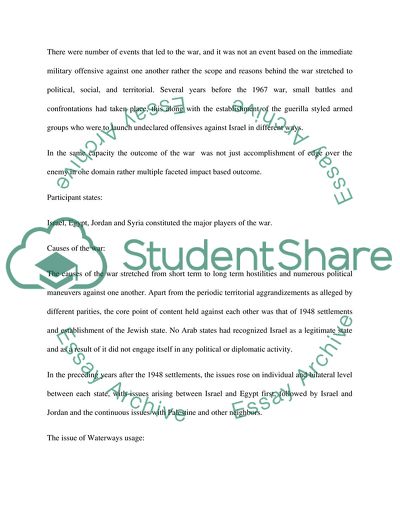Cite this document
(Regional Impact of the Arab Defeat in 1967 War Case Study Example | Topics and Well Written Essays - 2750 words, n.d.)
Regional Impact of the Arab Defeat in 1967 War Case Study Example | Topics and Well Written Essays - 2750 words. https://studentshare.org/history/1804632-what-was-the-regional-impact-of-the-arab-defeat-in-the-six-day-war-of-1967
Regional Impact of the Arab Defeat in 1967 War Case Study Example | Topics and Well Written Essays - 2750 words. https://studentshare.org/history/1804632-what-was-the-regional-impact-of-the-arab-defeat-in-the-six-day-war-of-1967
(Regional Impact of the Arab Defeat in 1967 War Case Study Example | Topics and Well Written Essays - 2750 Words)
Regional Impact of the Arab Defeat in 1967 War Case Study Example | Topics and Well Written Essays - 2750 Words. https://studentshare.org/history/1804632-what-was-the-regional-impact-of-the-arab-defeat-in-the-six-day-war-of-1967.
Regional Impact of the Arab Defeat in 1967 War Case Study Example | Topics and Well Written Essays - 2750 Words. https://studentshare.org/history/1804632-what-was-the-regional-impact-of-the-arab-defeat-in-the-six-day-war-of-1967.
“Regional Impact of the Arab Defeat in 1967 War Case Study Example | Topics and Well Written Essays - 2750 Words”. https://studentshare.org/history/1804632-what-was-the-regional-impact-of-the-arab-defeat-in-the-six-day-war-of-1967.


